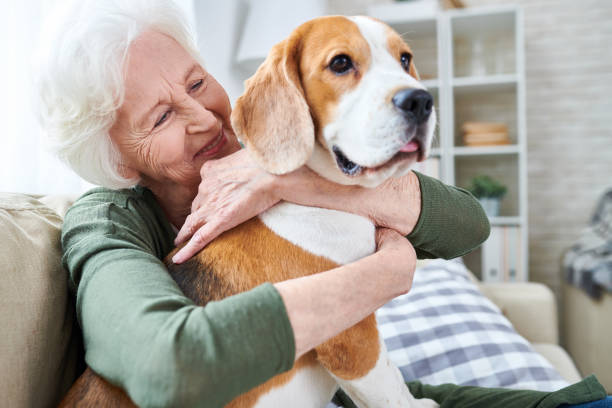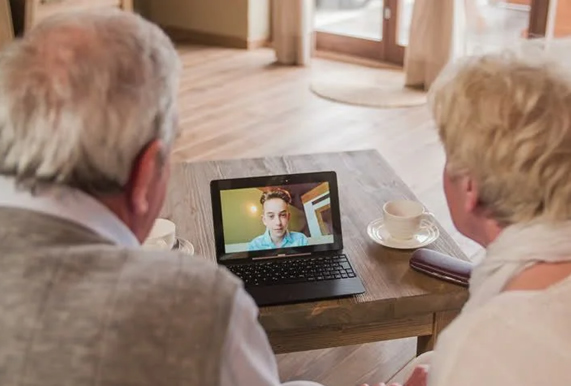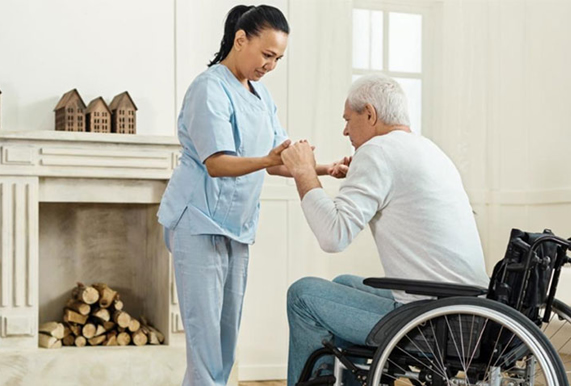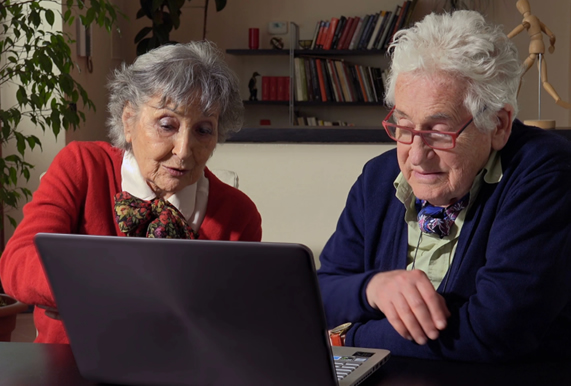Most doctors encourage senior patients to wear portable monitors to check on their blood pressure, heart rate or other medical conditions. These devices can come in smartwatches, blood pressure cuffs and glucose monitors. However, these systems don’t account for seniors in slip and fall situations. Roughly 36 million falls are reported among older adults each year; 20% of these falls cause broken bones, head injuries or other trauma.
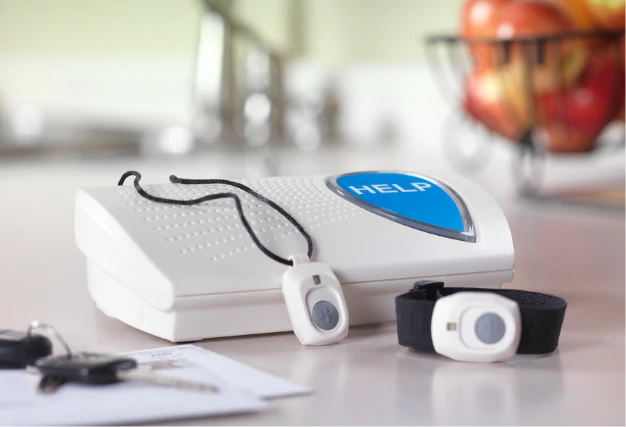
Using personal medical alert systems, seniors can quickly contact authorities when accidents or injuries, including falls, occur. In 2022, over 3 million people already own wearable medical-alert devices. MedGuard Alert provides multiple solutions with features that fit every need, and pricepoints that fit every budget. Find out more about senior medical alert systems, what is the best medical alert for seniors, and how you might be able to get one for free.
Why Seniors Should Consider Medical Alert Systems
If you are a senior that lives alone, having a fall or medical emergency can quickly turn tragic if you can’t reach the phone or find help quickly. Alert systems can provide security, safety, comfort and peace of mind.
Ease of Use
Medical alert systems are usually easy to wear; pendants or bracelets, or in the style of a smartwatch. They’re less bulky or obvious, and the discreet designs are intended to make them more convenient and less embarrassing. They provide a quick alternative to reaching a phone, remembering phone numbers or to pressing more than one button.
Feature and Budget Options
Though once bulky and obvious, monitoring systems are available now in many configurations. Current models can look like fitness or activity monitors, making them less obvious. They can also have GPS, which will help family and other loved ones track seniors prone to wander.
Peace of Mind
Knowing their loved ones are being monitored constantly can help ease family members’ minds. Some systems can also text or email family members when, for example, the front door opens, or other events take place.
Independence
Since seniors can trigger the alarms when they need to, they’re in charge. Feel free to shower, sleep, or work in the yard knowing help is a quick button press away. Seniors can continue to live in their own homes knowing they are being overseen safely.

Help at the Push of a Button
Medical alert systems are monitored 24/7 and can dispatch family or first responders as needed. You can get the assistance you want and need, even if it won’t require medical treatment.
What Should You Look for in a Senior Monitoring System?
There are some features you should make sure are available in your monitoring system.
Here are some of the key features that should be included:
- Can it pair with a home security system? Check with your home security provider, and ask if there is an additional fee.
- Can others connect via the device? Some devices allow families to access the system, through a monitoring app on a smartphone or computer.
- Does it include a lockbox? Some companies offer a lockbox for emergency medical personnel to be able to access the home if seniors are incapacitated.
- How’s the battery life? Be clear on how to charge the device and how you will know whether the battery is low.
- How do you set it up? If there’s a base unit or console, will you need more than one to cover the entire home and yard? Explore whether landlines are required or whether it can use cellular data.
- Is it fully waterproof? Falls happen in the shower and bath, so this feature is vital.
- Is it wearable? You’ll want a device you find comfortable and unobtrusive enough to encourage its use.
- Is the speaker loud enough? Hearing loss can be a barrier, so make sure anyone trying to contact you from the response center can be heard.
- Is the system movable? Not all medical-alert providers offer nationwide service. Check to see if the system can move with you.
- What’s the range? With an in-home system, find out how far the wearable help button can be from the base unit and still operate. You’ll want one that can reach across their entire living space, and the nearby outdoors, too.
MedGuard Alert provides different options that suit every need, and every budget. We are also a Medicaid approved provider in many states, nationwide. If you would like to learn more about emergency medical alert services through MedGuard Alert, call today: 1-800-716-1433






